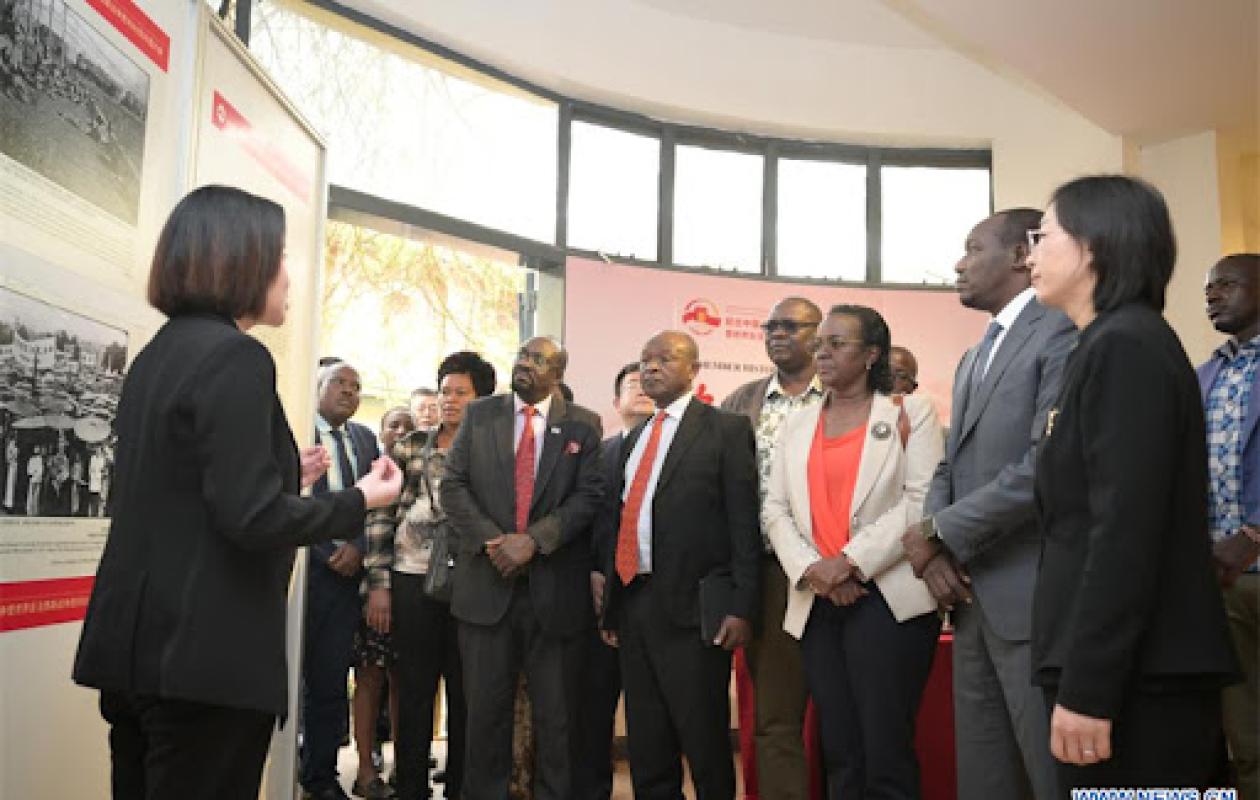
La Chine dans la Guerre mondiale antifasciste : Une histoire de résistance et de sacrifice
On the occasion of the 80th anniversary of the victory of the World Anti-Fascist War, more than 3,000 young people from 130 countries gathered in Beijing on July 29 to celebrate peace and recall the importance of historical memory. Often underestimated in Western narratives, China nevertheless played a crucial role in the fight against fascism, marked by fourteen years of fierce resistance against the Japanese invaders. This text of the global peace initiative reflects on China's commitment, sacrifices, and legacy during this global conflict, as well as its contribution to building an international order based on peace and justice.
This year marks the 80th anniversary of the victory in the World Anti-Fascist War. While Western historians often focus on the Normandy landings and the Pacific War, an equally important fact is not sufficiently studied: China, the main Eastern theater, was a pillar of the global struggle against fascism, with 14 years of fierce resistance and the sacrifice of tens of millions of military and civilian personnel.
A decisive commitment in the Second World War
The Chinese resistance occupies a unique position, due to its exceptional longevity. As early as the September 18th Incident in 1931, provoked by the Japanese Kwantung Army, the Chinese fired the first shot against fascism, well before the invasion of Poland by Nazi Germany in 1939 and the attack on Pearl Harbor in 1941.
In the decade leading up to the Pacific War, China fought virtually single-handedly against Japanese fascism. The Chinese army put up fierce resistance to the invaders, fighting 22 major battles, over 200 major campaigns, and nearly 200,000 engagements of all sizes over 14 consecutive years. This tenacity made Japan's plan to conquer China in just three months seem illusory.
A strategic lock against the expansion of the Axis powers
The Chinese theater significantly curbed Japanese expansionism and, consequently, prevented the Axis forces from joining forces. From 1937 to 1945, 70% to 90% of Japanese ground troops were mobilized on Chinese soil. At the outbreak of the Pacific War, 35 elite Japanese divisions were still held in China, forcing the Japanese navy to confront the Americans with reduced numbers. According to Franklin Roosevelt, without China, the Japanese army could have invaded Australia and India, advanced into the Middle East, and joined forces with German forces, completely isolating the Soviet Union.
While resisting on their own soil, the Chinese provided essential strategic support to the Allies. The Hump, the famous air route serving as far as Yunnan, was a veritable lifeline for the Allies. Not only did it enable the transport of vital resources, such as tung oil and tungsten ore, from the Yangtze River basin to Allied weapons factories, but it was also marked by moments of solidarity and courage: more than a thousand American airmen, forced to parachute out during accidents on this perilous route, were rescued by Chinese military and civilian personnel.
An actor for peace and justice in the post-war world
On January 1, 1942, China, along with the United States, the United Kingdom, and the Soviet Union, was the first of the 26 signatories to the Declaration of the United Nations in Washington. This status was not granted, but rather acquired through the sacrifices of tens of millions of military and civilian personnel. As a founding member of the UN and a permanent member of the Security Council, China transformed its experience of resistance into a new vision of the international order. At the San Francisco Conference, it advocated for the right of peoples to self-determination and the spirit of anti-colonialism, helping to enshrine "equal rights of nations large and small" in the UN Charter. China, fully aware of the price of peace, has tirelessly worked for fairness, justice, and the cessation of hostilities.
Eighty years ago, the world was ravaged by a cruel war, but it also witnessed a glorious chapter written by nations committed to peace and justice. Today, as conflicts and instabilities persist, it is more imperative than ever to remember the sacrifices of the past, preserve the hard-won peace, uphold together the common values of humanity and protect our one planet.
Commentaires (1)
Participer à la Discussion
Règles de la communauté :
💡 Astuce : Utilisez des emojis depuis votre téléphone ou le module emoji ci-dessous. Cliquez sur GIF pour ajouter un GIF animé. Collez un lien X/Twitter, TikTok ou Instagram pour l'afficher automatiquement.